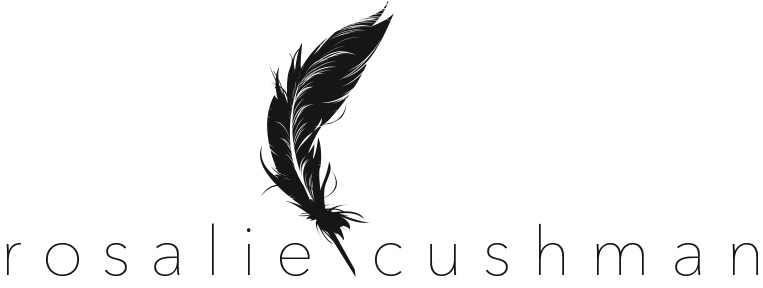Suicide! With Kate Spade and Anthony Bourdain’s recent suicides, a national conversation has occurred. It happened after Robin Williams’ death as well only to fade away like so many other shocking events in contemporary life these days. People are genuinely sympathetic and empathetic for a time only to fall back into daily living. It’s natural enough, of course.
And yet, the non-celebrities continue to kill themselves. Someone’s father or mother, sister or brother, son or daughter that we hear little or nothing about, other than the statistics that mount up like so many piles of caskets. The celebrities have everything? Obviously not. The anonymous? Just as obvious, though something is missing in all, something deep, something primal, a bottomless pit.
I happen to know a little about the topic of suicide having been suicidal in the 1980’s myself, besides having some friends and family take their own lives, or attempt to. Yes, my episode sprang from a severe depression. It also had as its a priori several traumatic events, events that I occasionally shared with others but rarely to the depths of my anguish. The feelings of pain, the ‘lost in translation’ was, well, LOST! How could I communicate it, their lives so different, seemingly having everything an average person could want in America with none of the trauma, none of the pain.
The terror of being judged, the visible shrinking back of others when I began to talk about a husband jailed as a political prisoner in Iran in the 1970’s, and that being jacks for openers. My reliving of it through the telling, I swear I could see a listener’s pupils contract, a physical but subtle manifestation of them tucking back into themselves. Too scary for them, too alien. When that occurs, it becomes dangerous psychologically and emotionally to continue of course so I, as teller, stopped, which was also dangerous, the packing of pain tighter and deeper inside.
Lepers
I liken depression, especially severe depression, to leprosy. The alienation a depressed and certainly suicidal person feels is profound. I know that’s how I felt–an alienation so strong, so deep it actually becomes even more reason to not share the terror one is feeling inside. Yes, there is always therapy. It saved me in so many ways even though it is an imperfect profession. And yes, there is medication without which I would have certainly had a hard time pulling myself back from the brink. There is even hospitalization. I did that too, and again it helped.
But you think I tell many people I was on a psych ward? What are you thinking and feeling, dear reader, right now, those of you who know me? Did you instantaneously have to rethink Rosalie, how you perceive me? Damaged goods? Pity? Do you think it’s contagious? This terror I once felt possibly infecting you? The very alienation that comes with depression, the profound sense of separation–a huge symptom along with shame, blame, humiliation–leprosy– why, it’s one of the very things that blocks the telling AND the listening. You begin to fake it because of the branding. What does Chris Cuomo call it below? Stigma?? Sure. I know all about stigma.
Stigma Is as Stigma Does
Of course like Cuomo says in his piece below, the suicide hotlines are good to know, important to provide, along with the conversation about suicide in general and about the depression that is its mother. We live in a culture where it’s actually easier to talk about porn stars than the hellish black hole that leads to taking one’s own life. I have found myself mildly irritated with people’s “oh this is so sad, so sad Bourdain or Spade or Robin Williams couldn’t reach out and ask for help.” I know those comments are out of naivete’, even if well intentioned. But still, the sting of it. It’s like telling a person in a wheelchair to get up and walk, oh how sad they can’t get from here to there by themselves. The hidden message is “please don’t involve me; don’t get too close.”
But do you see the burden that is placed on the one sometimes least capable of getting that help on their own, particularly in an environment where others shrink back and judge? Have you ever stopped to think about reaching in to someone who has said they’re depressed, not just them reaching out to you or someone else? Of course it’s good to encourage someone to get help but don’t you see? The very alienation they are drowning in dramatically inhibits that action sometimes.
And while it’s important, I personally think it’s not enough to ask questions like ‘do you have a plan: pills or bullets, etc. If you EVER hear someone state “I want to die” ask them “why is that?” What’s your plan is too close to acting on it. Stop putting all the burden on the very person that is in so much pain that they can’t think straight, feeling light years away from someone’s compassion, love and understanding.
Silver Linings
I have been so blessed to have come out of a storm, a severe sorrow, a “Han”– ‘a sorrow so deep the tears won’t come’, at least for a time those long years ago. I have been blessed to have had enough good therapists and drugs to actually be able to eventually cry, be heard, feel less alienated, less alone in the hole I found myself in, to crawl up and out of it. Even now when I feel down, I have learned to identify and know that while others can’t relate to my circumstances, biochemically or by events, there may be a caring listener. And if not? I write, which is one of my salvations. Some folks are even able to understand even if they have not experienced the same situations. Anyone who’s known anguish regardless of its presumed source or circumstance can sometimes offer a listening heart.
In addition, I have been blessed to see that others out of ignorance who have no intimate knowledge of such states, can be as “handicapped” as I am in mine. This allows me to have greater understanding and compassion for them. So the next time you hear of a suicidal tragedy like Bourdain’s or Spade’s, resolve to listen to a person in your own circle of friends or acquaintances, to really listen, without judging, without ONLY providing a phone number or therapy practice that points them away from you towards some professional that can save them. While those actions can be hugely helpful, you have no idea how instrumental a non-judgmental listening heart, a truly compassionate person can be.
No one can truly save another who really wants to die but we can care, really care, question, ask, be patient, circle back. It can make a huge difference. You won’t know when or if it can. But silence can be devastating at times. In depression there are no pink ribbons, no parades, no giant national fundraisers. It lives in the shadows. Still. For those of you who are able try to practice courage, to listen to someone needing to risk and rid themselves of alienation and separateness. If you expect the person suffering to ‘dig deep’ I’d encourage those of you that can to do the same. And more of you are able than you know.







You may recall my memoir The Abyss you critiqued about the several clinical depressions I suffered through in med school. I get it. Depression was the worst thing I have ever experienced hands down. Sorry you had to live through that. Glad you came out on the other side.
Thanks for your emphasis on being a good listener.
Yes, really listening is an art.